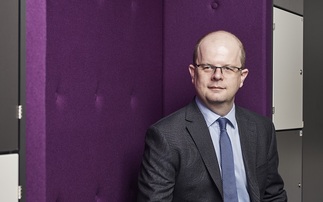Do you approach your key engagement themes differently to your peers?
A good example is our approach to social and financial inclusion and how it links to climate risk. We've been championing a ‘just transition', or the idea that we have to make sure that as we transition to a low-carbon economy, we understand and address the social and economic impact. I grew up in Alberta where my dad worked in the oil sands for over 40 years, so I'm conscious that we may not be able to shift the dial on climate risk fast enough if people are afraid of losing their jobs.
We've been championing a just transition in the UK. We worked closely with major UK energy company, SSE plc, the first company globally to publish a ‘just transition' statement and we are now getting four or five other companies to do the same. We wanted to move the needle forward on an issue that not many investors were working on. I feel we've made real progress in the last 12-18 months.
What are your other key themes and which is looming larger on your radar now than a year ago?
Our key engagement themes are climate change, which everyone across the industry is doing; social and financial inclusion, as mentioned, which is important for us as a mutual and also through some of our exposures to financial services in the bond space; the circular economy, which is new to us as a theme and which will also help us tackle things like biodiversity; corporate governance; diversity; and innovation and technology in society.
The technology in society theme offers all sorts of tricky and fast-evolving issues that Mike Fox, our Head of Sustainable Investments, and I talk about a lot. At what point are technology companies part of the problem and not part of the solution? How might AI algorithms affect people's ability to get insurance or their human rights? Our approach to this theme is not wholly developed but it is something we are committed to tackling.
How are you tracking engagement success across your themes?
We've got an engagement tracker so every time we meet with a company, we put that into a database and assign a progress label. Over time we should be able to quantitatively track our engagement successes. We think it is really important to articulate to clients what the purpose is of our engagement - and whether we are achieving engagement outcomes.
Click here to read about the rising trend to quantify and tightly define sustainability - and why Royal London Asset Management's team think this may have important strategic implications.
INVESTMENT RISKS
Past performance is not a guide to future performance. The value of investments and the income from them may go down as well as up and is not guaranteed. Investors may not get back the amount invested.
IMPORTANT INFORMATION
For professional clients only, not suitable for retail clients. This is a financial promotion and is not investment advice. The views expressed are those of the contributors at the date of publication unless otherwise indicated, which are subject to change, and are not investment advice.
Issued in July 2021 by Royal London Asset Management Limited, 55 Gracechurch Street, London, EC3V 0RL. Authorised and regulated by the Financial Conduct Authority, firm reference number 141665. A subsidiary of The Royal London Mutual Insurance Society Limited.












